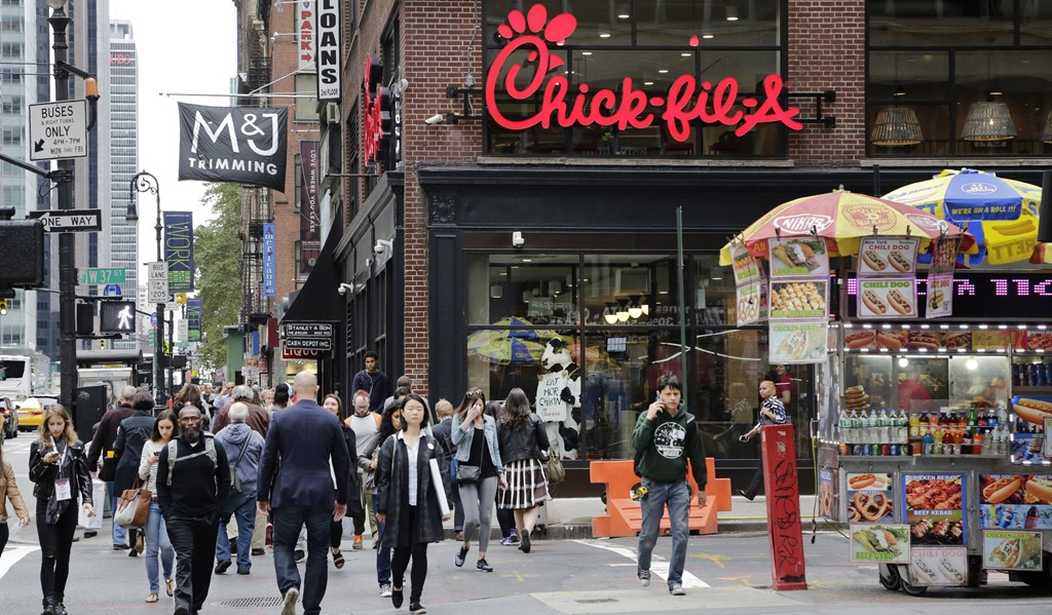One Chick-fil-A owner might have finally given liberals a reason to praise the Christian company it loves to hate.
Eric Mason, who has owned a Chick-fil-A in Sacramento, California, for almost three years now, announced earlier this week that he will start paying those applying for the store's "hospitality professional" position $17 an hour. He currently pays his employees $12 to $13 an hour.
It’s not exactly clear what a “hospitality professional’s” role is, but a local listing on a job search site for another California Chick-fil-A gives us an idea.
“A Hospitality Professional provides world-renowned, extraordinary service to our guests. The position is essential to the restaurant in having a positive influence on all who comes into contact with Chick-fil-A,” the ad reads. “Hospitality Professionals provides unforgettable hospitality within the four walls of our restaurant and even beyond through our Drive-Thru. We do not require restaurant experience as a pre-requisite for consideration for employment.”
Minimum wage in the state is currently $11 an hour. However, California is steadily increasing that rate by $0.50 a year. By 2020, the minimum wage will be $15 an hour.
But according to Mason, that’s not why he made the decision to raise his employees' wages — at least it’s not the only reason.
“The people is the real key component to successful businesses,” Mason explained to ABC 10. “We're looking for people who are looking for long-term opportunity, someone who can build relationships with our guests.”
“We're looking for people trying to raise families, improve their lifestyle,” he added.
Recommended
However, if the past —and a slate of studies — are anything to go by, a higher minimum wage doesn’t always translate to a higher standard of living for workers.
In 2014, Seattle passed a $15 an hour wage hike that was set to take place over two years. It was a disaster. New York City also gave the wage hike thing a go and didn’t fare any better. The result in both cases was business closures, fewer job opportunities overall, and fewer hours for those who could find work.
But these prime examples of how raising the minimum wage can go horribly wrong hasn't slowed down the Fight for 15. Eighteen states decided to raise their minimum wages in 2018. Those with the biggest hikes were Arizona, California, Colorado, Hawaii, New York, Rhode Island and Vermont.
While many businesses in California are preparing for the change, Mason seems to be the exception by raising his employees' wages all at once.
“All responsible employers are preparing for the impact of the increasing minimum wage, but they are usually doing it over time and planning for it,” Carey Klosterman, director of research and compensation services at the California Employers Association, told Fox2Now. “While increasing the wage to this level at a fast food restaurant is commendable, I don’t foresee that many businesses will likely be following in their footsteps.”
It’s not hard to see why. Wage hikes are expensive for a business, hence why so many restaurants went under in the Empire State.
But according to Fox2Now, Mason will likely see one benefit to paying his workers so much more: a reduced turnover rate. Of course, keeping workers for longer won’t mean much if the business closes its doors before the end of the year.
Mason says he knows it won’t be easy, but he doesn’t appear too worried.
The change will take effect Monday, June 4th.
Now if only Chick-fil-A would hire people to work on Sundays. That’s a change everyone could get behind.
























Join the conversation as a VIP Member